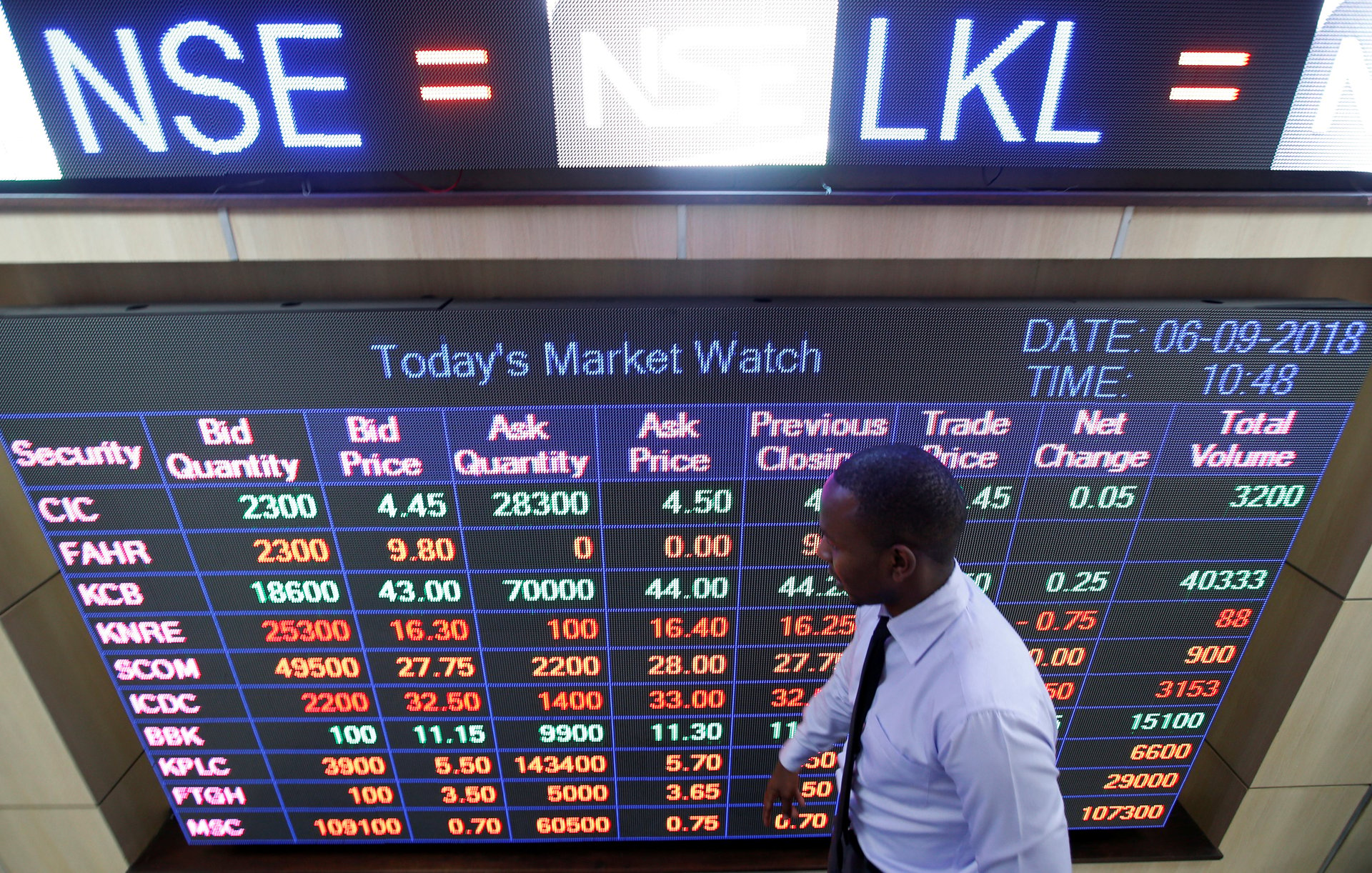Foreign investors are fleeing Kenya’s stock market
Many have withdrawn money from the Nairobi Securities Exchange, kept afloat now by local investors

Foreign investment in Kenyan stocks has nosedived.
In March, the Nairobi Securities Exchange (NSE), east Africa’s biggest bourse and Kenya’s only such institution, recorded a six-year low of 30.1% in foreign investment, data from Kenya’s Capital Markets Authority (CMA) shows. Local investors are keeping it afloat.
NSE’s woes, however, aren’t new. In April 2022, foreign investors cashed out $14.3 million, seeking other havens.
$170 million withdrawn from Kenya in 2022
Last year, foreign investors pulled out $170 million from the Kenyan stock market, citing escalating global risks. This worsened the plunge in share prices of NSE-listed firms, especially commercial banks.
Telecom major Safaricom, NSE’s biggest scrip by average capitalization, lost 36.4% of its value, adding to foreign investors’ fears. Usual top performers like Equity Bank, Kenya Commercial Bank, and Co-operative Bank of Kenya, all recorded share price devaluation.
“[These] foreign investors are not really moving back home but playing in frontier markets. There were better returns from markets such as Nigeria, Zimbabwe and Mauritius,” Solomon Kariuki, stockbroker AIB-AXYS’ Africa research analyst, told Business Daily.
Kenya’s stock markets and a dollar scarcity
Between January and September 202, Kenyan investors lost $6.37 billion as NSE-listed firms’ share values plunged 28%.
This was triggered by a reduced appetite for Africa’s capital markets, following a hike in interest rates in developed markets like the US. As a result, central banks in African countries were forced to adjust interest rates upwards, amid weakening local currencies and rampant inflation.
Kenya had not yet fully recovered from its stock market crisis when droughts, food insecurity, and rising inflation struck. Russia’s invasion of Ukraine then caused a global fuel price hike, increasing the cost of living.
The Kenyan shilling has for the longest time been measuring lowly against the US dollar. The shilling has lost over 37% of its value against the dollar in the past five years. What’s worse is the fact that it is also depreciating against other major global currencies. And there is no sign of its recovery any time soon.
The result has been a limited supply of dollars, a problem Kenya has faced since the covid-19 pandemic. This directly affects the livelihoods of millions.
Coupled with its other economic challenges, the dollar shortage has primarily stalled companies’ expansion prospects, heightening the ever-present threat of job losses and financial insecurity.